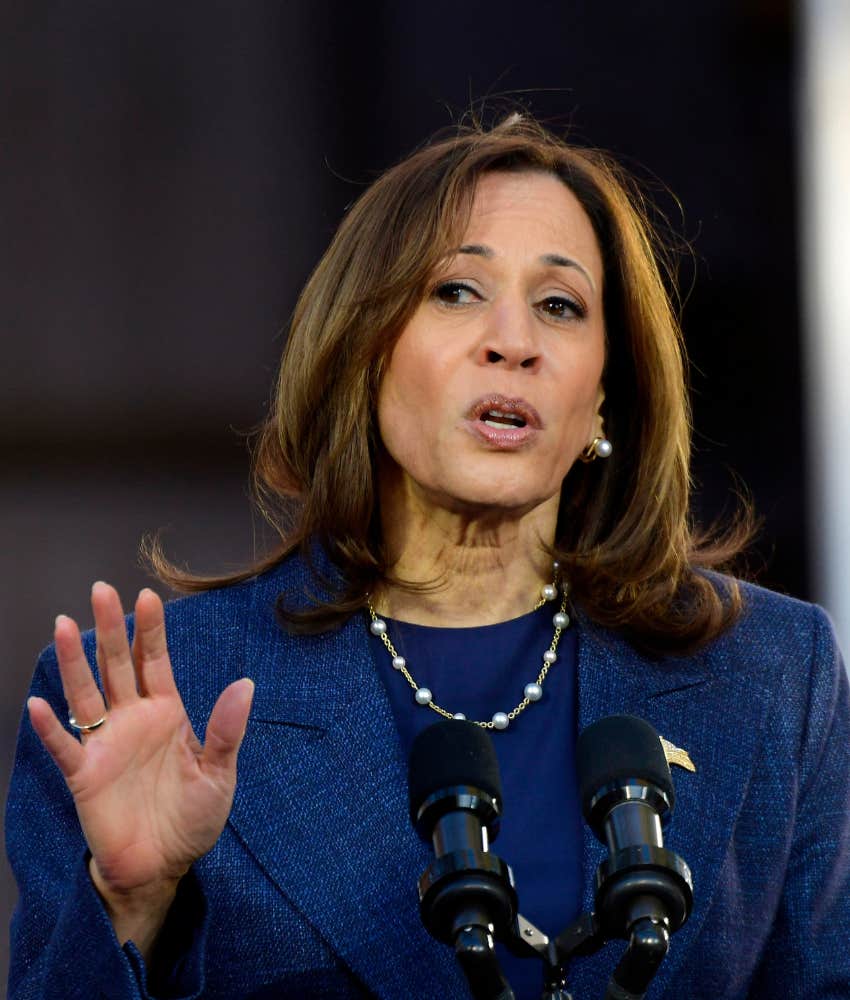Women Chose The Bear And Then Expected Men To Show Up For Them On Election Day
Are women to blame for the reason men didn't support Kamala Harris?
 El Nariz | Shutterstock
El Nariz | Shutterstock Ladies, if you had to be stuck alone in the woods with either a man or a bear, which would you choose?
This is the question that captivated the internet several months ago as women across the world considered which would be the safer choice. For understandable reasons, many of them could not trust a man they didn’t know — they chose the bear.
Women collectively sent a message of distrust to men using the viral Bear versus Man social media trend.
Choosing the bear became an internet phenomenon long before the 2024 presidential election. But now, some are wondering, is there a link?
The Associated Press reported that Donald Trump enjoyed a large lead among male voters. A whopping 60% of white men voted for him in the recent election, in addition to 25% of black men and 48% of Latino men.
Many blamed it on misogyny. In an article for The Guardian, Simon Tisdall argued that misogyny could “cost [Harris] the election.”
Now that we can look back in retrospect, was it really misogyny and sexism that kept men from supporting Harris, or was it a deeper issue?
Many women backed Harris because of her stance on women’s rights issues.
After the United States Supreme Court overturned Roe v. Wade, effectively eliminating a woman’s right to reproductive freedom, Harris made body autonomy a talking point for her campaign. She focused on reproductive rights and restoring them to women who lived in states restricting abortion access.
Many women also rejected the idea of a second Trump term in the White House because of his track record with women. According to ABC News, “At least 18 women have accused Donald Trump of varying inappropriate behavior, including allegations of sexual harassment or sexual assault. All but two came forward with their accusations before or during his first bid for the White House.”
 OogImages | Shutterstock
OogImages | Shutterstock
Women saw Harris as the safer option in this race. She was, metaphorically, the bear. She would protect them and their rights, so they stood by her. And they expected men to do the same on their behalf.
Rebecca Gau, a Republican from Arizona, told the BBC that she was voting for Harris, and she suspected other Republican women were too.“I don’t care what the political persuasion is — women are fed up,” Gau stated.
These fed up women asked — in some cases, begged — the men in their lives to vote for Harris as well, with Michelle Obama delivering a stirring speech on the campaign trail asking men to stand with the female Harris supporters they knew and loved.
Except they didn’t. The numbers clearly show they turned out for Trump in this election. Now, women are left asking why the men in their lives did not care about them enough to vote for their rights.
Perhaps the damage was already done.
Men found a voice in the Trump campaign.
Notably, just as the Harris campaign reached out to women, the Trump campaign’s outreach was focused on men, specifically young men.
“Trump and MAGA have made explicit outreach to men, and young men, a critical part of their strategy,” Young Men’s Research Initiative co-founder Jackson Katz told Newsweek.
Surely, part of the reason men did not support Harris in the voting booth was that they did not feel particularly supported by her. It was Trump who actively courted their vote. But then, what of the men who supposedly weren’t there for the women in their lives?
Well, the argument could be made that those women weren’t there for them either. When given the choice, they said they would rather be stuck in the woods with a bear.
Many are trying to make the argument that men abandoned women in this election. Really, though, it could be said that women abandoned men much earlier.
Ultimately, though, no one abandoned anybody. Everyone simply voted for the candidate they thought was best based on their personal opinions, and that’s all you can ask for in an election.
Mary-Faith Martinez is a writer for YourTango who covers entertainment, news and human interest topics.

